Faro is the capital of the Algarve region in Portugal and a popular tourist destination known for its beautiful beaches, charming old town, and rich history.
The city is situated on a peninsula and boasts a beautiful natural harbor. Its strategic location has made it an important trading post and a gateway to the Algarve for centuries.
Faro’s Old Town is a charming maze of narrow streets with colorful buildings, shops, and restaurants. The city also has several historical landmarks, including the Faro Cathedral, the Capela dos Ossos (Chapel of Bones), and the Arco da Vila (City Gate).
The Ria Formosa Natural Park is another major attraction in Faro. This stunning natural park is a haven for birdwatchers and nature lovers, with its lagoons, marshes, and islands. Visitors can enjoy boat tours of the park, go birdwatching, or simply relax on the beach.
Faro is also popular for water sports, such as swimming, sunbathing, and surfing. Its beaches, with fine white sand and clear blue waters, are some of the most beautiful in the Algarve.
Moreover, Faro is a charming and vibrant city with something to offer everyone. Whether you’re looking for a relaxing beach vacation, a cultural experience, or an adventure in nature, Faro is the perfect destination.
For more inspirations and travel guides please visit our blog.
Why it’s considered a hidden gem
Faro, Portugal, is a hidden gem because it combines rich history, stunning natural beauty, and authentic Portuguese culture without the overwhelming crowds of other tourist hotspots. While places like Lisbon or Porto are well-known, Faro remains under the radar, allowing visitors to explore its charm relaxedly.
The Old Town of Faro, with its cobblestone streets, ancient city walls, and landmarks like the Faro Cathedral, is a treasure trove of heritage. Walking through its quiet alleys feels like uncovering a piece of Portugal’s past, untouched by time.
Another reason Faro stands out is its proximity to the Ria Formosa Natural Park. This stunning lagoon system is home to vibrant wildlife and offers unique activities like birdwatching and island hopping to places like Praia de Faro. Its serene coastal beauty and balanced ecological richness make it a true paradise for nature lovers.
Moreover, Faro’s traditional cuisine, especially its fresh seafood dishes, provides an authentic taste of the Algarve region. Unlike more commercialized cities, Faro offers these experiences in a genuine and welcoming atmosphere, making it feel like a secret waiting to be discovered.
Faro’s blend of authentic culture, historical significance, and breathtaking landscapes makes it a hidden gem perfect for travelers seeking something special.

Unique charm compared to other popular Portuguese destinations
Faro possesses a unique charm compared to other popular Portuguese destinations due to its harmonious blend of natural beauty, historical significance, and a slower pace of life.
While Lisbon offers bustling city life and Porto boasts a vibrant cultural scene, Faro provides a more relaxed atmosphere. The city’s proximity to the Ria Formosa Natural Park allows for easy escapes into nature, offering opportunities for birdwatching, kayaking, and exploring pristine beaches. This connection to the natural environment sets Faro apart, providing a tranquil counterpoint to the more urbanized destinations.
Furthermore, Faro retains a sense of authentic Portuguese culture that can sometimes be overshadowed by tourism in other popular spots. The Old Town, with its narrow cobblestone streets and historic architecture, offers a glimpse into the city’s past. The local markets, filled with fresh produce and traditional crafts, provide a taste of everyday life in the Algarve.
This combination of natural beauty, historical charm, and a slower pace of life creates a unique and inviting atmosphere in Faro, making it an ideal destination for those seeking a more authentic and relaxing Portuguese experience.
Where Faro is located in Portugal
Faro is located on the southern coast of Portugal, within the Algarve region. It occupies a strategic position on a peninsula where the Ria Formosa, a network of lagoons, marshes, and barrier islands, meets the Atlantic Ocean. This unique geographical setting has significantly influenced Faro’s history and development, as well as its economy, culture, and overall character.
The city’s location within the Algarve places it amidst a region renowned for its stunning natural beauty, including dramatic cliffs, pristine beaches, and picturesque fishing villages. Faro is a gateway to this captivating region, offering easy access to explore the diverse landscapes and charming towns that dot the Algarve coastline.
Transportation
- Flights: Faro International Airport (FAO) is the primary gateway to the Algarve. Numerous airlines offer direct flights from major European cities, making it a convenient option for international travelers.
- Trains: Portugal boasts an efficient railway network, with regular train connections to Faro from Lisbon and other major cities. While train travel might be slightly slower than flying, it offers scenic views of the Portuguese countryside.
- Buses: A comprehensive bus network connects Faro to various destinations within the Algarve and throughout Portugal. Buses are a budget-friendly option that provides flexibility and access to smaller towns and villages.
The transportation choice will depend on your budget, time constraints, and preferred travel style.
Best times to visit Faro, Portugal
The best time to visit Faro depends on your priorities:
For the best weather:
- Summer (June to August): Expect hot, sunny days often exceeding 30°C (86°F). This peak season has the most sunshine and the longest days, perfect for beach lovers. However, be prepared for larger crowds and higher prices.
For a more relaxed experience:
- Spring (March to May) and Autumn (September to November): These shoulder seasons offer pleasant weather, fewer crowds, and often better deals on accommodations. Spring brings blooming flowers and mild temperatures, while autumn provides warm days and cool evenings.
For a unique experience:
- Winter (December to February): While temperatures are cooler, winter offers a unique charm with fewer tourists and a chance to experience Faro’s local life. You might encounter occasional rain showers, but the city retains its beauty.
Ultimately, the best time to visit Faro depends on your preferences and priorities.

Accommodation in Faro
Faro offers diverse accommodation options to suit various budgets and preferences.
Hotels:
- Luxury: Faro boasts several upscale hotels offering luxurious amenities, stunning views, and impeccable service. These hotels often feature rooftop pools, spas, and fine-dining restaurants.
- Mid-range: Numerous mid-range hotels offer comfortable accommodations, convenient locations, and essential amenities at more affordable prices.
- Budget: For budget-conscious travelers, Faro offers a variety of budget-friendly options, including hostels, guesthouses, and affordable hotels. These options are often located near the city center and major attractions.
Other options:
- Apartments and villas: Self-cateringatering apartments and villas offer a home-away-from-home experience with fully equipped kitchens and private. They are ideal for more extended stays or groups of travelers spaces.
- Hostels: Hostels are popular for budget travelers. They offer shared rooms and dormitory-style accommodations. They often feature communal areas and social events, making them ideal for meeting other travelers.
Choosing your accommodation:
The best choice for you will depend on your budget, travel style, and desired amenities. Consider factors such as location, proximity to attractions, and the type of atmosphere you prefer. Booking in advance is recommended, especially during peak season, to secure your preferred accommodation and save money.
No matter your budget or preferences, Faro offers a wide range of accommodation options to ensure a comfortable and enjoyable stay.

Top Attraction in Faro
Ria Formosa Natural Park
Ria Formosa Natural Park is undoubtedly the top attraction in Faro, offering visitors a unique and captivating experience. This vast network of lagoons, marshes, and barrier islands stretches along the Algarve coast, creating a haven for diverse flora and fauna.
Why It’s Special:
- Natural Beauty: The park’s serene landscapes, crystal-clear waters, lush vegetation, and abundant birdlife provide a tranquil escape from the bustling city.
- Biodiversity: The park is home to a rich variety of plant and animal species, including numerous bird species, fish, and marine life. It’s a paradise for birdwatchers and nature enthusiasts.
- Outdoor Activities: Visitors can enjoy various activities within the park, such as boat tours, kayaking, birdwatching, and exploring the multiple islands.
- Unique Ecosystem: The Ria Formosa is a unique ecosystem constantly evolving with the tides and seasons. It offers a glimpse into the delicate balance of nature.
Exploring the Park:
- Boat tours are the most popular way to explore the park. They offer stunning views of the lagoons, islands, and wildlife.
- Kayaking provides a more intimate experience. Visitors can paddle through calm waters and explore hidden coves.
- Island Hopping: Several islands within the park, such as Culatra and Deserta, offer beautiful beaches and opportunities for hiking and relaxation.
Ria Formosa Natural Park is a must-visit destination for anyone traveling to Faro. Its natural beauty, biodiversity, and diverse activities make it a truly unforgettable experience.
Arco da Vila (Town Arch):
- A Neoclassical Gateway: This iconic archway, built in 1812, is the main entrance to Faro’s historic Old Town. It replaced an older Moorish gate, reflecting the city’s rich history.
- Architectural Marvel: The arch features a striking neoclassical design, adorned with intricate details and topped by a bell tower. It stands as a testament to Faro’s resilience, having been reconstructed after the devastating 1755 earthquake.
- A Symbol of Faro: The Arco da Vila has become a beloved symbol of the city, welcoming visitors and offering a glimpse into its past.
Faro Cathedral:
- A Monument to Faith: Located in the heart of the Old Town, the Faro Cathedral is a prominent landmark and a significant religious site. Its imposing structure dominates the cityscape and showcases a blend of architectural styles.
- Historical Significance: The cathedral’s history dates back to the 13th century, with various additions and renovations reflecting different periods. It has witnessed centuries of religious and cultural activity.
- Architectural Highlights: The cathedral features a magnificent main altar, intricate carvings, and stained glass windows, offering a glimpse into the artistry and craftsmanship of past eras.
Old Town:
- A Maze of Charm: Faro’s Old Town is a captivating labyrinth of narrow, cobblestone streets with colorful buildings, charming shops, and traditional restaurants.
- Historical Exploration: Wandering through the Old Town offers a Journey through time, with glimpses of Moorish influences, medieval architecture, and remnants of the city’s past.
- A Cultural Hub: The Old Town is a vibrant center of cultural activity, hosting festivals, markets, and lively events throughout the year.
These landmarks and the Ria Formosa Natural Park contribute to Faro’s unique charm and offer visitors a memorable experience.
Scenic views and outdoor adventures
Faro and the surrounding Algarve region offer many outdoor adventures and breathtaking scenery opportunities.
Ria Formosa Natural Park: This vast network of lagoons, marshes, and barrier islands provides stunning vistas. Kayaking through the calm waters, exploring the various islands, or simply observing the abundant birdlife offers unforgettable experiences amidst nature’s beauty.
Coastal Delights: The Algarve boasts dramatic cliffs, pristine beaches, and hidden coves. Hike along the rugged coastline, relax on golden sands, or dip in the crystal-clear waters. The region’s diverse landscape offers something for every outdoor enthusiast.
Beyond Faro: Venture beyond the city limits to discover charming fishing villages, explore the rolling hills of the interior, or visit the dramatic cliffs of the western Algarve. Each location offers unique scenery and opportunities for outdoor activities.
Whether you’re seeking tranquility amidst nature, thrilling water sports, or simply enjoying the beauty of the coastline, Faro and the Algarve region provide a wealth of opportunities for outdoor adventures and unforgettable experiences.

Traditional Portuguese dishes to try in Faro
With its coastal location, Faro offers a delightful culinary experience centered around fresh seafood. Here are some must-try traditional Portuguese dishes:
- Cataplana de Marisco: This flavorful seafood stew is cooked in a unique, domed copper pot, imparting a distinct flavor. It typically includes a medley of clams, mussels, shrimp, and other fresh seafood, simmered in a rich broth with herbs and spices.
- Arroz de Marisco: This seafood rice dish is a classic Portuguese comfort food. It features a generous amount of fresh seafood, such as shrimp, clams, and mussels, cooked with rice, creating a flavorful and satisfying meal.
- Peixe na Brasa is a simple yet delicious dish featuring grilled fish, often sardines or sea bass, seasoned with salt, pepper, and olive oil. The fish is cooked over an open flame, producing a smoky, flavorful crust.
- Amêijoas à Bulhão Pato: This classic Portuguese dish features clams cooked in a simple yet flavorful sauce made with garlic, coriander, white wine, and olive oil. The clams are typically served in their shells, making them enjoyable.
These are just a few delicious traditional Portuguese dishes you can savor in Faro. Explore the local restaurants and markets to discover more culinary delights.
In addition to these savory dishes, you should indulge in some of Portugal’s famous pastries, such as Pastel de Nata and Bolo de Arroz.
Enjoy your culinary adventure in Faro!
Exploring local markets, museums, and art galleries
Faro offers a variety of unique experiences beyond the beaches and natural beauty. Here are a few ideas:
- Exploring Local Markets: Delve into the vibrant atmosphere of Faro’s local markets. The Mercado Municipal, a bustling market hall, offers a feast for the senses with fresh produce, seafood, spices, and local crafts. Immerse yourself in the sights, sounds, and smells as you interact with local vendors and discover hidden treasures.
- Discovering History at Museums: Faro’s museums offer a glimpse into the city’s rich history and cultural heritage. The Faro Municipal Museum houses a collection of archaeological artifacts showcasing the region’s past from prehistoric times to the present. The Regional Museum of the Algarve delves deeper into the region’s history, culture, and traditions.
- Embracing Art at Galleries: For art enthusiasts, Faro offers a variety of art galleries showcasing contemporary and traditional works by local and international artists. Explore the galleries in the Old Town, where you’ll find a diverse range of styles and mediums, from paintings and sculptures to photography and ceramics.
These experiences offer a deeper understanding of Faro’s culture, history, and local life, providing a unique and enriching addition to your visit.
Day trips to nearby islands and towns
Faro serves as an excellent base for exploring the Algarve region. Here are some popular day trip destinations:
- Islands of the Ria Formosa: Take a boat trip to explore the Ria Formosa Natural Park islands.
- Culatra Island: This largest island offers beautiful beaches, charming fishing villages, and opportunities for watersports.
- Desert Island: A more secluded island, ideal for those seeking tranquility and pristine beaches.
- Barreta Island: Known for its lighthouse and a more rugged landscape.
- Olhão: This charming fishing town offers a glimpse into traditional Algarve life. Explore the bustling fish market, wander the colorful streets, and enjoy fresh seafood at local restaurants.
- Tavira: This historic town boasts a well-preserved Roman bridge, a charming historic center, and beautiful beaches.
These day trips offer a chance to experience the Algarve’s diverse beauty, from the Ria Formosa’s serene islands to the charming towns and villages that dot the coastline.
Please note: Transportation to these destinations can be easily arranged by bus, taxi, or rental
Birdwatching:
- Ria Formosa Paradise: Faro’s proximity to the Ria Formosa Natural Park makes it a birdwatcher’s haven. The park is home to various bird species, including flamingos, herons, egrets, and many more. Guided birdwatching tours are available, offering insights into the local avifauna.
- Observatory Points: Several designated park observation points provide excellent birdwatching opportunities. Binoculars are recommended for optimal viewing.

Boat Tours:
- Ria Formosa Exploration: Boat tours are a popular way to explore the Ria Formosa. They offer stunning views of the lagoons, marshes, and islands while providing opportunities to spot wildlife, including birds, dolphins, and other marine life.
- Island Hopping: Boat tours often include stops at various islands within the park, such as Culatra, Deserta, and Barreta, allowing visitors to explore their unique landscapes and beaches.
Cycling:
- Coastal Routes: The Algarve offers scenic cycling routes along the coast, providing opportunities to explore charming villages, enjoy breathtaking coastal views, and experience the local culture.
- Ria Formosa Trails: Several cycling trails wind through the Ria Formosa Natural Park, offering a unique perspective of the lagoon system and its diverse ecosystem.
- Bike Rentals: Numerous bike rental shops in Faro offer a variety of bicycles, from comfortable cruisers to more robust models for adventurous cyclists.
These activities offer visitors a unique and enriching opportunity to experience the natural beauty of Faro and the surrounding region.
Navigating Faro: Tips and Etiquette
Navigating the City:
- Walking: Faro’s Old Town is compact and easily explored on foot. Wear comfortable shoes, as the streets can be cobbled.
- Public Transportation: Faro has a sound public transportation system, with buses connecting various parts of the city and surrounding areas. Tickets can be purchasedpurchased from kiosks or directly from the driver.
- Taxis: Taxis are readily available and an efficient way to get around, especially at night. Use official taxi stands or hail them on the street.
- Cycling: Rent a bike to explore the city and surrounding areas at your own pace. Cycling paths are available along the coast.
Cultural Norms and Etiquette:
- Greetings: Greet people with a friendly “Bom dia” (good morning), “Boa tarde” (good afternoon), or “Boa noite” (good evening).
- Pace of Life: Embrace the relaxed Portuguese pace of life. Avoid rushing and take your time to enjoy the local culture.
- Dining: It is customary to order several dishes to share when dining out. Tipping is appreciated but not always expected.
- Respect for Local Customs: Dress modestly when visiting religious sites. Avoid loud or disruptive behavior in public spaces.
- Learning Basic Portuguese Phrases: While English is spoken in tourist areas, learning a few basic Portuguese phrases will enhance your interactions with locals.
Following these tips and respecting local customs can ensure a pleasant and enriching experience in Faro.

Final Thoughts
Faro, Portugal, offers a perfect blend of history, natural beauty, and authentic Portuguese culture. From exploring the charming Old Town and Faro Cathedral to enjoying the tranquility of Ria Formosa Natural Park and Praia de Faro, every experience feels unique. With its quiet charm, delicious seafood, and welcoming atmosphere, Faro is the ideal destination for an authentic and unforgettable getaway. Don’t miss the chance to uncover this hidden gem!


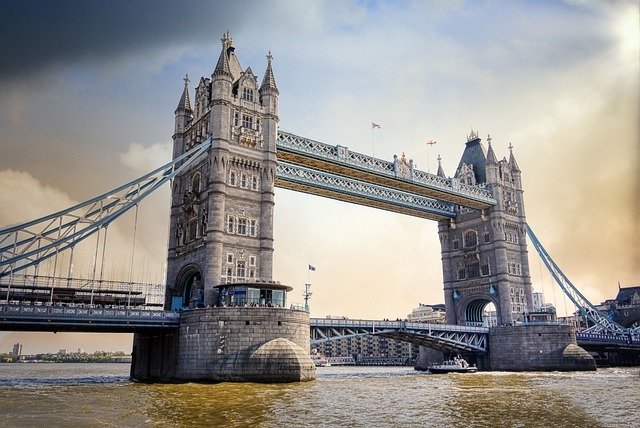

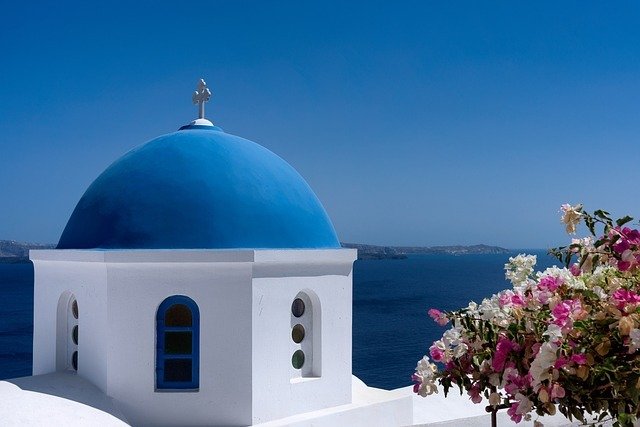

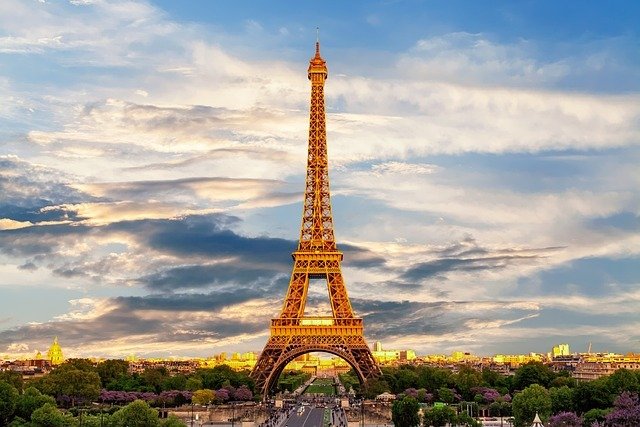
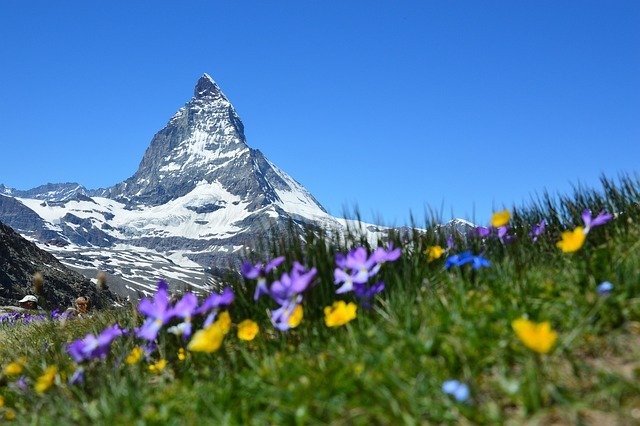


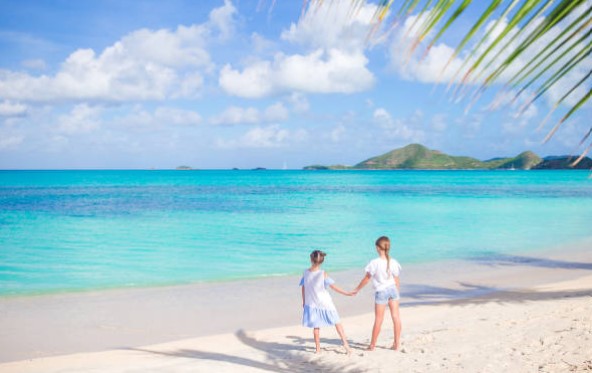
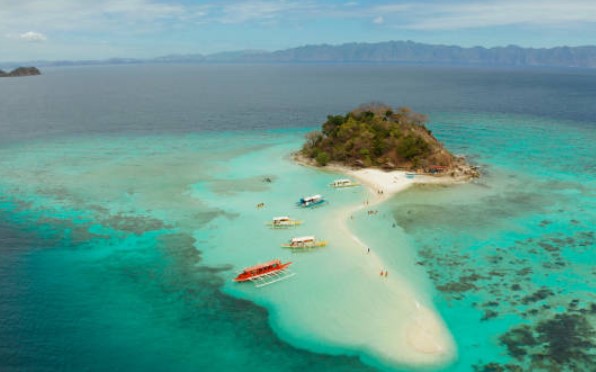
One Response
There is visibly a lot to realize about this. I assume you made some nice points in features also.